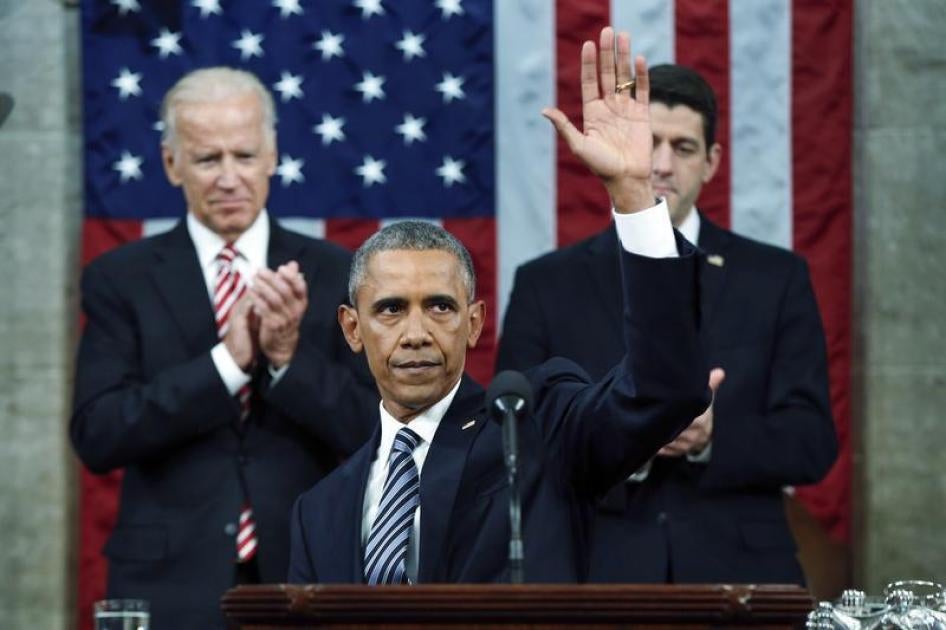Last night’s State of the Union address, the final one delivered by United States President Barack Obama, culminated in a call for a better politics. “Democracy grinds to a halt without a willingness to compromise; or when even basic facts are contested, and we listen only to those who agree with us,” Obama said. He added that the one regret of his presidency was the worsening of the “rancor and suspicion” between the political parties.
That was an apt theme for his final address – when it comes to cementing a legacy on human rights issues, Obama has largely had to go it alone, without actions by Congress. A number of his key rights initiatives in the US are on a weak foundation because they are not drawn from congressional legislation. As executive orders, they are at risk of not being renewed by his successor.
Obama has fallen short in some key areas of protecting human rights in the US, hobbled by a Congress unwilling to partner on comprehensive immigration reform. With his own executive efforts on immigration, Obama has alternately played the hero and the villain (currently back to villain due to his administration’s questionable push to deport families with young children who have recently fled violence in Central America). Yet his high points on executive action are indisputable – particularly his efforts to protect migrants who have been in the US for several years. But none of his administrative pushes guarantee a path to legal status, and ultimately citizenship, to millions of long-residing unauthorized immigrants in the country. And the decision to defer their deportation is at the whim of the next president.
On criminal justice reform, Obama may continue to grant clemencies for unfair drug-related sentences, but without Congress engaging on wider reforms, future federal sentences could remain broken and unfair, disproportionate both in terms of length and racial impact. Obama can propose modest changes to firearm safety policies, but little on firearms compared to what Congress is empowered to do.
Once again last night, Obama called for the closure of the Guantanamo Bay detention facility, though part of his solution may be to simply transfer some of the men to the US for continued indefinite detention without trial. Guantanamo should be closed, but doing so by bringing an unlawful detention regime to the US would make a future president more likely to embrace it. Closing Guantanamo while respecting human rights requires Congress as a partner, not an obstacle.
One piece of unfinished business Obama chose not to address was the need to account for torture carried out by US officials as part of the CIA detention and interrogation program. Even with new federal anti-torture legislation in place, future administrations may again try to twist the law prohibiting torture, knowing that the consequences are few.
Obama’s record when it comes to human rights at home may not be fully understood for years, if not decades. Its core weakness is that it rests on a shaky foundation, built in the absence of congressional action. That makes for a tenuous legacy.









